SWANVILLE — When Jerry and Emily Ireland got married, Emily’s parents decided to give them 80 acres of land that has been in the family for generations.
Jerry Ireland, a 39-year-old Army veteran, decided to farm the land, even though he had no experience. He started watching YouTube videos and asking other farmers for help. In the 3½ years since, Ireland has tapped 2,000 maple trees, grown plots of vegetables, raised chickens, grass-fed cattle and grain-free pigs, and bottled honey from his beehives. He is now building a new farm store named after his wife’s grandfather, who was a well-known dairy farmer in the area. Ireland Hill Farms has given the Ireland family a good living, but it has given Jerry Ireland himself so much more.
It has given him a sense of pride that he hasn’t felt since he was in the military, working at the Pentagon and on support missions in Iraq and Afghanistan. It has given him an alternative to the 30 medications he once took to deal with post-traumatic stress and other pain – but which left him in a mental fog – and the street drugs that helped him cope but almost killed him.
The farm has, he said, given him a second chance at life.
“Farming allows you to get to the roots of the problems on your own time and in a good environment, in a productive environment that just isn’t possible in a traditional VA system,” he said. “It works.”
Ireland is part of a growing national movement to re-train veterans as farmers. It’s an idea that has been gaining traction through the work of the California-based Farmer Veteran Coalition, a national organization that will hold its second annual conference in Sacramento in November. The coalition is now starting to form state chapters, and Maine is poised to become the first in the nation when it files the paperwork in October, according to Michael O’Gorman, founder and executive director of the Farmer Veteran Coalition. The Maine group recently selected a nine-member board of directors and will hold its first board meeting Oct. 1.
The Farmer Veteran Coalition has 5,170 members across the country, and there are “hundreds” of other regional groups working together to connect veterans with agriculture, O’Gorman said. The movement also has considerable federal support. The 2014 Farm Bill gave veterans special status that will make it easier for them to get low-interest loans, apply for grants, and educate themselves about agriculture through training and technical assistance programs. Several agencies that help beginning farmers are now required to channel a percentage of their funding to veterans. Last fall, at the first national conference of the Farmer Veteran Coalition, the U.S. Department of Agriculture announced a new position, the Military Veterans Agricultural Liaison, intended to help strengthen support across agencies for veterans who want to become farmers.
And USDA Deputy Secretary Krysta Harden says she will soon announce an expanded collaboration with the U.S. Department of Defense that will focus on providing the 200,000 Americans who leave military service each year with the training they need to start their own farm or ranch business.
“Rural America disproportionately sends our sons and daughters to serve in the military,” she wrote in an email. “When service members return home, we want them to know that rural America has a place for them, no matter where they’re from. We’ve seen an overwhelmingly positive response from returning veterans who are eager to get back to the land and continue serving their country.”
Why do so many veterans want to trade in their guns and military craft for plows and tractors?
“People talk about healing and people talk about how nice it is to be outside, how nice it is to be around things that are alive,” O’Gorman said. “You’re making things grow. You’re nurturing and not having to kill or destroy. But I think the single thing that makes it work is that people see farming as a real sense of purpose.”
Military people are purpose-driven, O’Gorman observed, and the younger veterans have been serving in two of the longest-running wars in American history, with repeated deployments. Many feel a little lost when they leave the tightly scheduled, rigorous world of military life.
“You can replace that (with farming) and say, “I have something to get up in the morning for,'” O’Gorman said.
Farming gives returning soldiers a way to contribute to the community again without having to be chained to a desk in an office job, which may be uncomfortable both physically and psychologically. And their military training makes them good agriculturalists – they know how to set goals and complete tasks, and they are problem solvers.
“They’re not one second afraid to try something completely out of the box that’s brand new, that nobody else is doing,” Ireland said.
FOR SOME, FARMING IS GROUNDING
Chris Knowlton is a 36-year-old Iraq veteran, who left the military in 2003. Three years later, on a whim after visiting a local fair, he started farming six of the 25 acres his family owns in Swanville.
“I started out small with some goats and chickens,” he said. “Now I raise pigs and sheep, goats and rabbits, and I have a pretty good-sized garden.”
Knowlton had been struggling with sleeplessness and anxiety, but found that getting out of his own head, working hard, and especially taking care of animals eased those problems. “When you go to the VA,” he said, “they tend to just start pushing pills. That doesn’t really help. It just hides some of the issues.”
Just how therapeutic farming is in treating post-traumatic stress is still an open question, O’Gorman said. Much of the evidence is anecdotal, but enough veterans have claimed that farming provides significant relief that researchers are now starting to look at the connection seriously. The Farmer Veteran Coalition is cooperating with several ongoing studies, and PTSD research will be one of the subjects of the upcoming national conference in Sacramento.
Ireland is one veteran who says farming helped him climb out of a dark hole.
Ireland joined the Army so that he could pay for college, never dreaming that it would become a career. He did a couple of tours at the Pentagon after the Sept. 11 terrorist attacks, then traveled all over the world on classified missions working for military intelligence. His post-traumatic stress arose from “stuff I saw and things I never dealt with.”
“There was a lot of nightmares, a lot of not sleeping, which over months led to some chronic tiredness,” he said. “My wife at the time would say when she would come to bed I would throw her out of bed, which I don’t have any knowledge of to this day.”
Eventually he lost everything – his house, his job, his first marriage. He began self-medicating and was drawn into an eight-month battle with drugs that ended one desperate night in a hotel room. “I basically made a deal with God that if I was alive in the morning, my life was going to be different,” Ireland said.
Since that day, he has stayed away from drinking, drugging and smoking. Now, he says, thanks to farm life, “I’m not a disability. I’m a contribution.”
But he cautions that farming might not work for everyone.
“I don’t think you can just take people out of a drug rehab program at the VA and throw them on a farm and expect a cure,” Ireland said. “They have to want to be around animals or agriculture and that kind of thing. There has to be that desire for working and doing something. And it’s a process. Now I spend 80 percent of my time with animals and 20 percent of my time with people. The 80 percent of the time with animals relaxes me and keeps me calm so I can deal with people 20 percent of the time.”
Ireland has made it his mission to help other veterans, and has been a leader in the effort to bring the Farmer Veteran Coalition to Maine. Ireland knows of 30 farmer veterans living in Maine who served in Iraq and Afghanistan, but said there may be as many as 60. The Maine chapter seeks out veterans of all wars through social media, and every Wednesday someone from the group goes to the farmers market at U.S. Department of Veterans Affairs complex at Togus in Augusta. In July, more than 75 people showed up at a “farm event” at Ireland’s farm.
One of the programs the chapter is spreading the word about is “Homegrown By Heroes,” a new certification program developed by the Farmer Veteran Coalition to brand products so consumers will know they were produced by military veterans. Ireland is already using the “Homegrown By Heroes” labels on his maple syrup and honey, which he sells in the Portland Food Co-op and at the Dogtag Bakery in Washington, D.C.; he is also pitching it to local restaurants.
“Those restaurants can now use that as a marketing tool on their menu for people to say ‘OK, when you buy this product, when you order your meal, you’re not only supporting a farm in Maine, you’re supporting a veteran-owned farm in Maine,'” he said.
Ireland also dreams of setting up equipment hubs around the state that would help farmer veterans share farm equipment, and mentorship programs that would pair young veterans with aging farmers who are nearing retirement, an idea that would put dollars in the vet’s pocket and also extend the life of Maine’s farms. The veterans could be paid, Ireland suggests, using vocational rehab funds already targeted to veterans.
That idea appeals to Gary Giberson of Vienna, a 52-year-old Marine Corps veteran who went back to school at age 46 after jobs working in factories and driving trucks. He got interested in farming after writing some papers about factory farming, a topic that “kind of skeeved me out” and led him and his wife to buy four acres of their own in Maine. Giberson is just getting started. He grows a few crops, and cares for 11 hens that produce 50 to 60 eggs a week. He’d like to build an underground greenhouse like the ones that are being used in the cold mountainous regions of South America, raising meat birds, and getting a couple of goats for milk and cheese.
So far he’s been doing it all on his own, with invaluable input from “old timers.” He’s excited about connecting with other veterans who are farming and learning from them.
“When you’re in the military,” Giberson said, “you’re brothers and sisters. There’s no question, if you need me to be there, I’ll be there. That’s never gone away.”
Copy the Story Link
Send questions/comments to the editors.


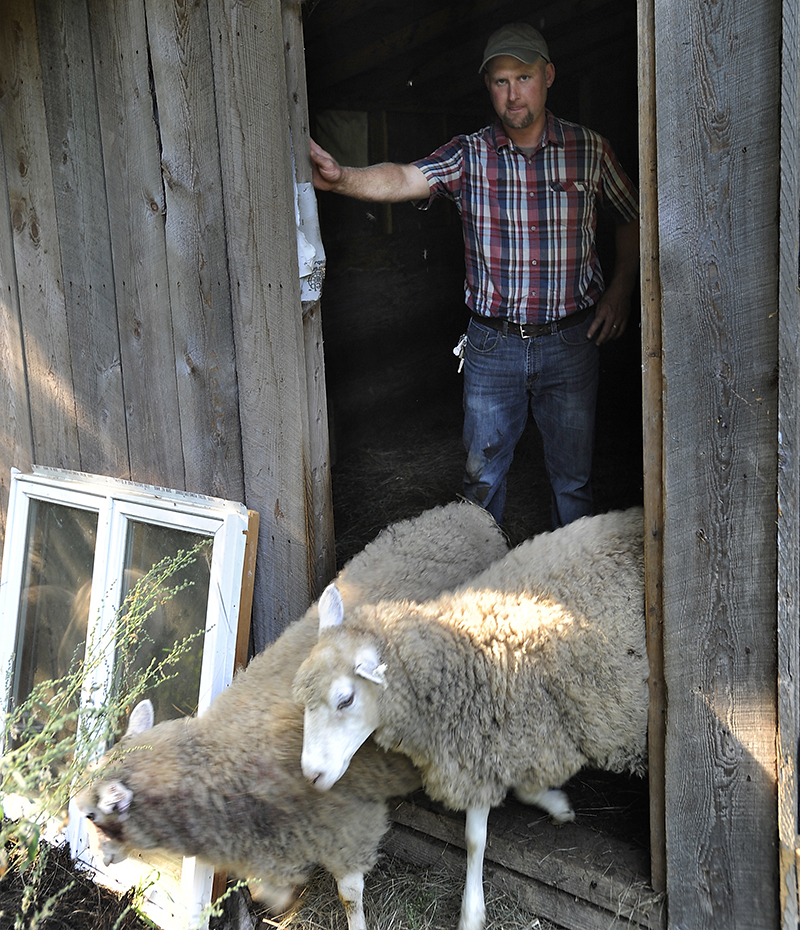
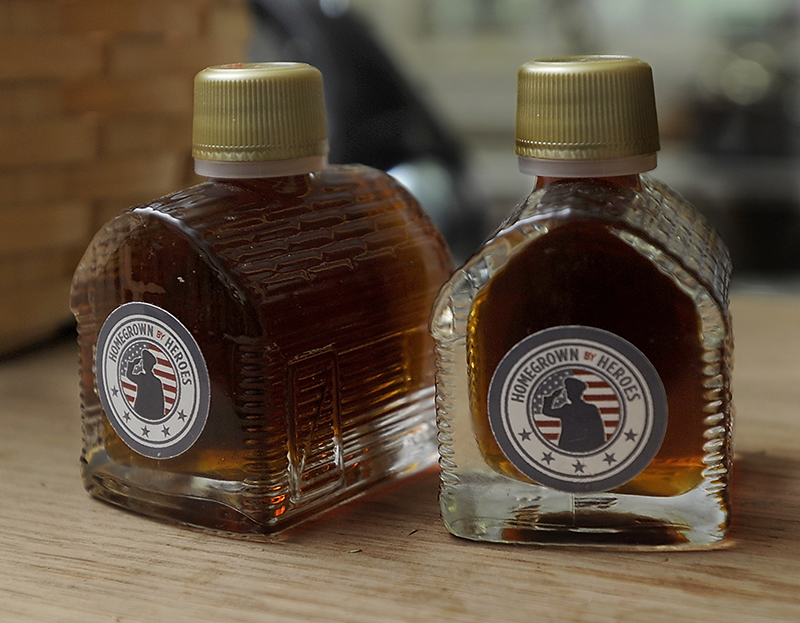
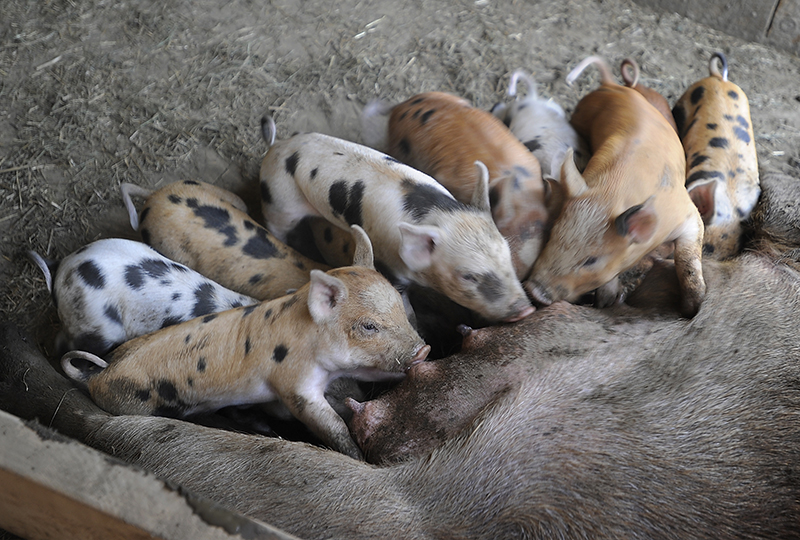
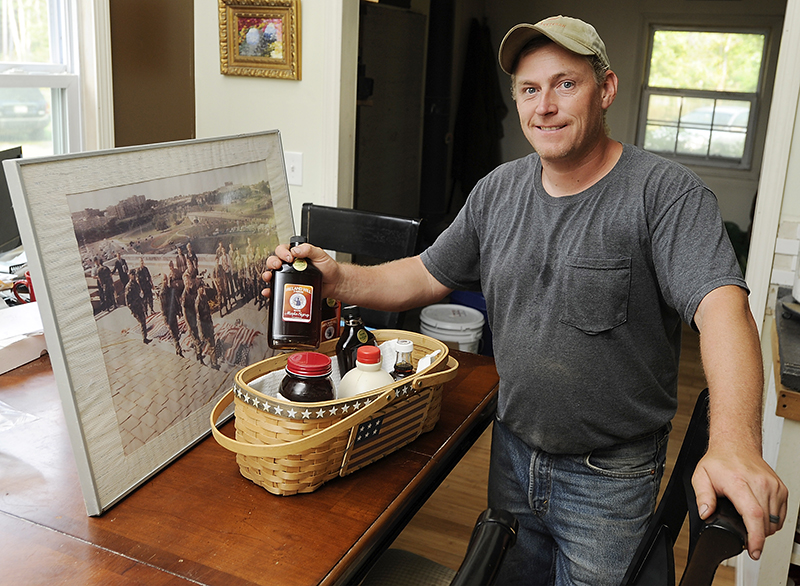
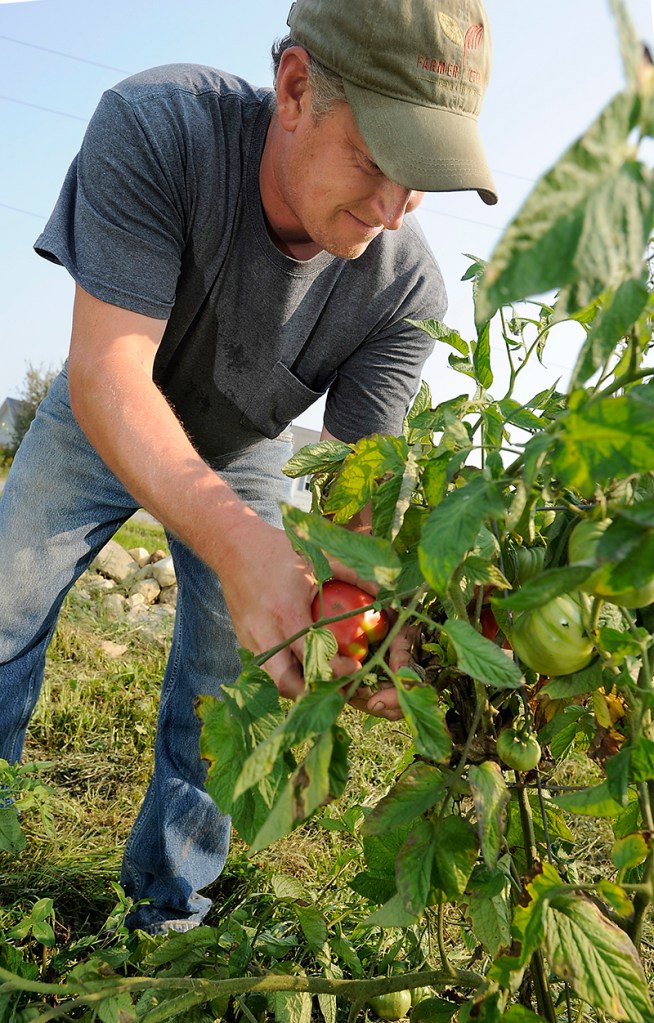
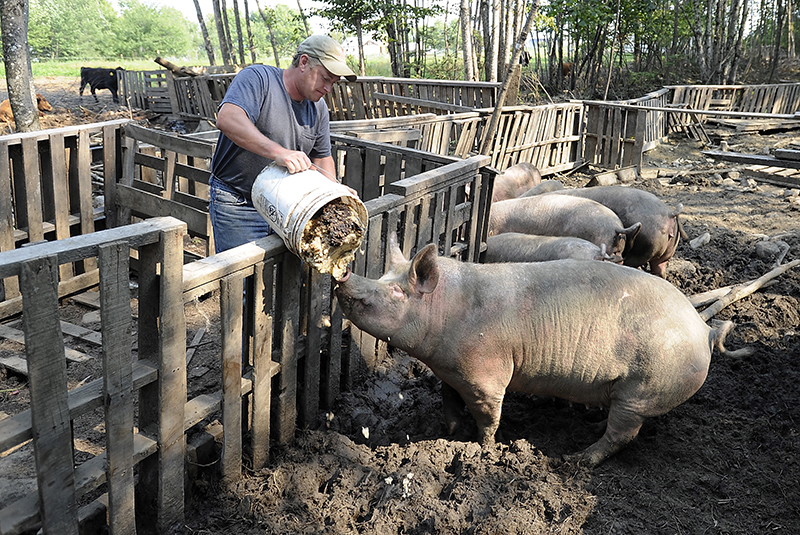
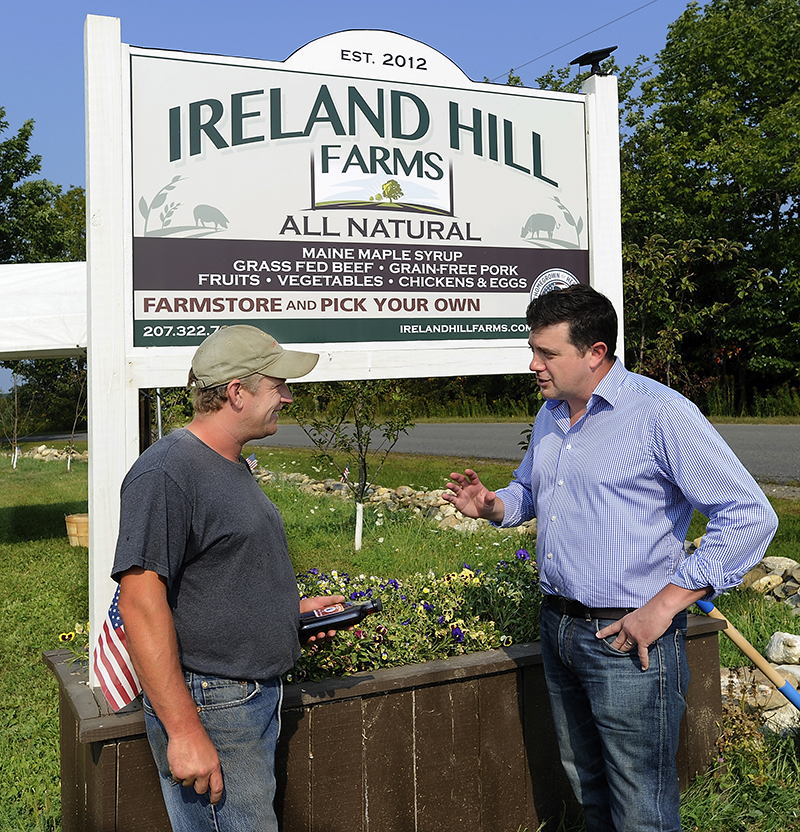
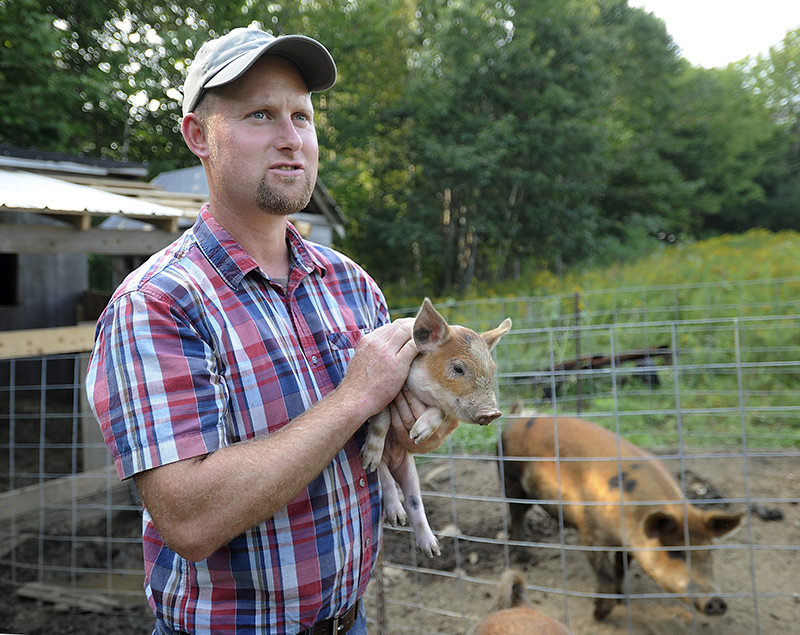
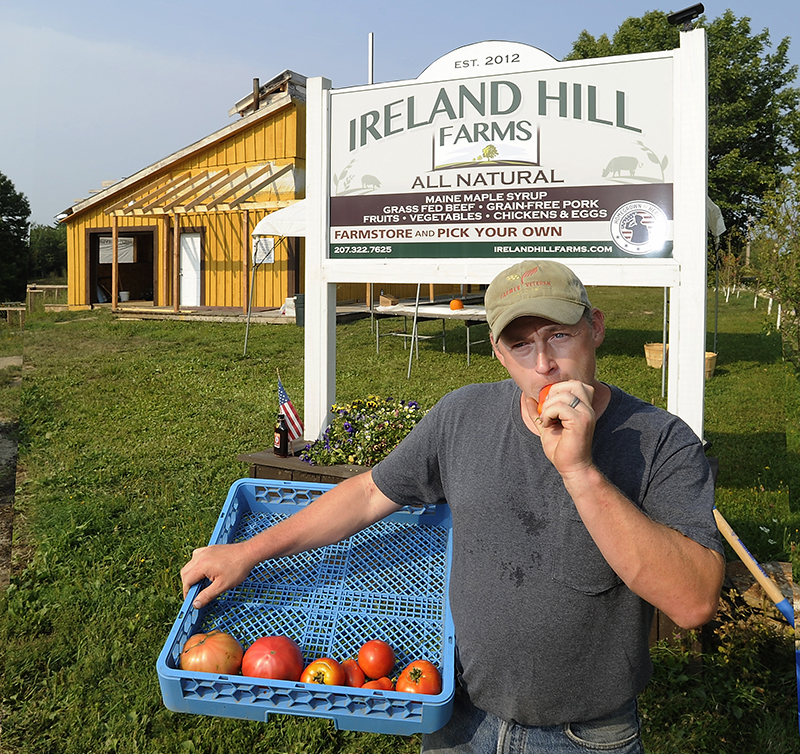
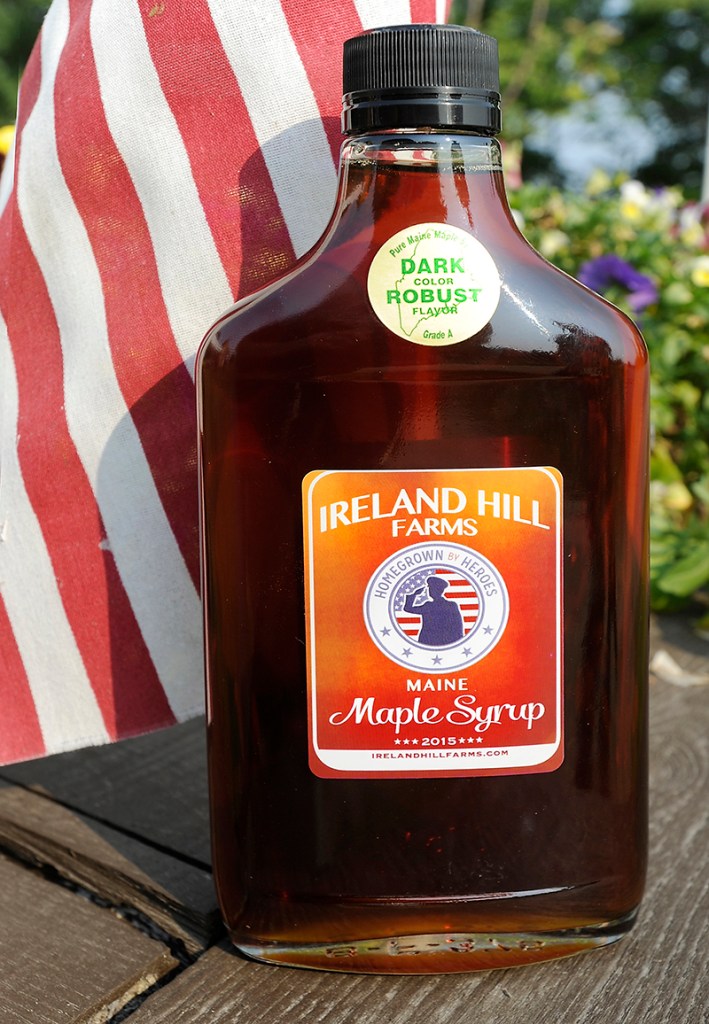

Success. Please wait for the page to reload. If the page does not reload within 5 seconds, please refresh the page.
Enter your email and password to access comments.
Hi, to comment on stories you must . This profile is in addition to your subscription and website login.
Already have a commenting profile? .
Invalid username/password.
Please check your email to confirm and complete your registration.
Only subscribers are eligible to post comments. Please subscribe or login first for digital access. Here’s why.
Use the form below to reset your password. When you've submitted your account email, we will send an email with a reset code.